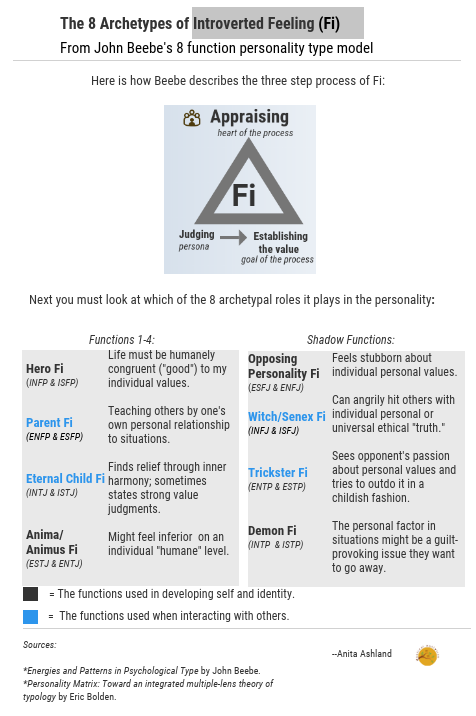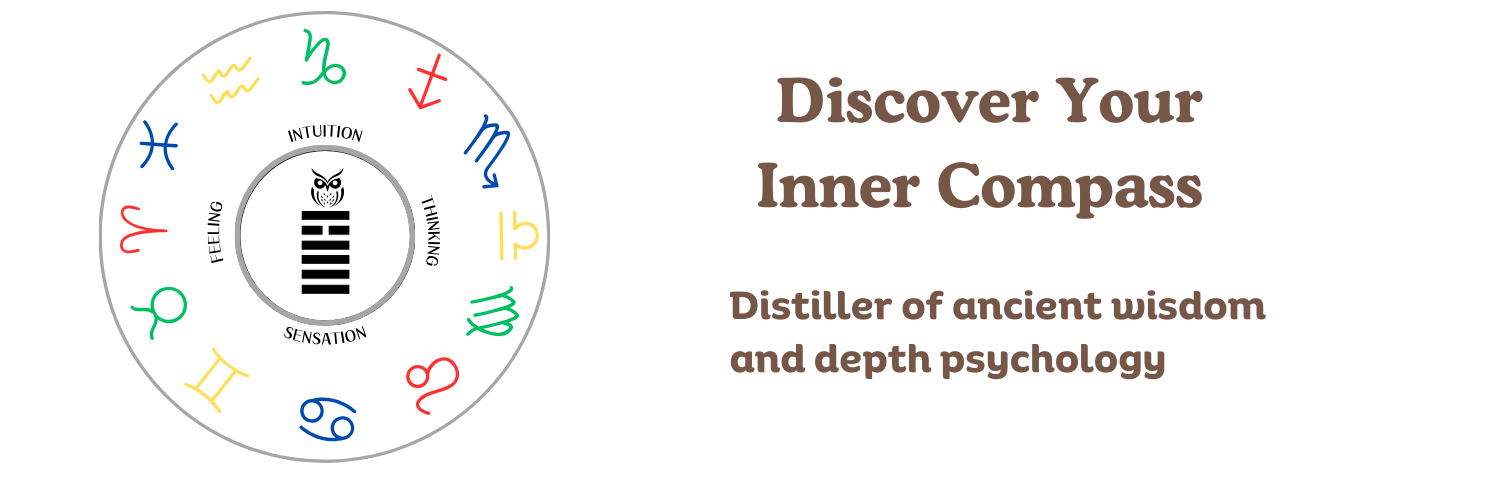The feeling function is about a lot more than feelings.
In fact, according to Marie-Louise von Franz, a person who seems full of feeling may not be a feeling type at all, but instead a thinking type with inferior feeling.
That’s because a feeling type ” disposes of feelings quite equanimously, may seem utterly devoid of feelings, distant and disinterested. Having feelings and using feeling is the difference between the contents and the process that organizes and expresses the contents.”
Feeling is the psychological process in us that evaluates.Feeling types can be intolerant of new values or deviations from values. A feeler doesn’t simply observe; he passes judgments and brings himself into relationships with what he evaluates. According to von Franz
Feeling types take time, so that often they inhibit movement with their slowness because they tune into an atmosphere. If it is not to their suiting, they subtly impose their feeling world or disturb the one taking place by undercutting it. If they do not like the atmosphere and cannot change it, they may spend the evening in silence, unable to take part at all, meanwhile passing silent judgments, or attempting, if extroverted, to turn things into adapted sociable channels. The importance of ideas, the beauty of wild intuitions, or sensations just as they are, are not enough. Things must be evaluated and related to.
Lectures on Jung’s Typology by Marie-Louise von Franz and James Hillman
Now let’s take a look at introverted feeling (Fi) specifically.
In the book Jung’s Function-Attitudes Explained, Henry L. Thompson says that introverted feeling types are the hardest to understand “because they allow so little of themselves to appear on the surface, and the wall surrounding them is almost impossible to scale.Jung used the phrase ‘Still waters run deep’ when describing this type because ‘their depth of feeling can only be guessed.’ Hillman described them as the ‘deep feelers.'”
Fi types judge people, things, and thoughts by their own internal values and don’t readily conform to society’s values.Jung said that Fi shows “little effort to respond to the real emotions of the other person.” Strangers aren’t show special attention and the easiest place to see Fi express their feelings is with their children. They differ from extroverted feeling (Fe) types in that they don’t enjoy interpersonal closeness with strangers.
According to Thompson, they can be “mistaken for thinking types because of their perceived lack of warmth and friendliness. Their outward appearance might seem cold at times.” They are inclined to shun large gatherings because their Fi becomes numbed when too much comes in at one time.
von Franz says Fi types exert “a positive secret influence on their surroundings.” And they “very often form the ethical backbone of a group, without irritating the others by preaching moral or ethical precepts; they themselves have such correct standards of ethical values that they secretly emanate a positive influence on those around them. One has to behave correctly because they have the right kind of value standard, which always suggestively forces one to be decent if they are present. Their differentiated introverted feeling sees what is inwardly the really important factor.”
Below is the infographic I made that describes all 8 archetypal roles of Fi. All personality types have Fi and it behaves differently depending on where it is located. Half of the 16 personalities have it in the top four functions where it is more conscious. The other half have it in shadow.

Jung’s theory of the functions has a practical value, but it is not dogma, and Jung said we never see the pure form of a function. Furthermore, functions don’t act in isolation, we are usually using more than one function at a time.
This is part 6 of 8 in the series. My other articles in the series:
The 8 archetypes of Extroverted Sensation (Se)
The 8 archetypes of Introverted Sensation (Si)
The 8 archetypes of Extroverted Intuition (Ne)
The 8 archetypes of Introverted Intuition (Ni)
The 8 archetypes of Extroverted Feeling (Fe)
